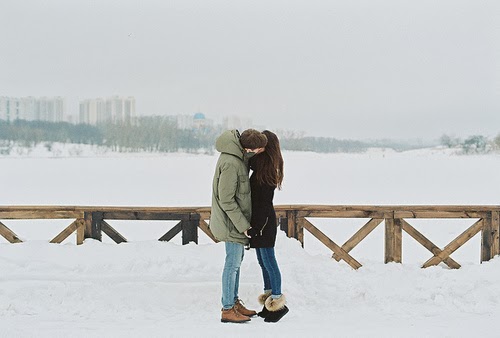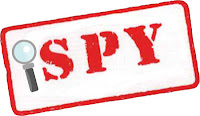Join the authors and friends of
Not Your Usual Suspects for an occasional series of posts about their world of reading, writing and publishing.
Short and sweet, hopefully both informative and entertaining - join us at I-Spy to find out the how's and why's of what we do.
TODAY'S POST: I-Spy something beginning with ...
Choosing a pen name
Clare: I want to give full credit up front to Angela James of Carina Press, as this is largely drawn from her posts on the subject, and I agree with everything she says!
You can follow Angela on Twitter
@angelajames, visit her
Facebook page or her
website.
How different from your real name does your pen name need to be?
Remember,
you’re going to be answering to this pen name for (hopefully) the rest
of your life. Maybe you want to keep your “real” first name so you don’t
have to train yourself to be called by a second name. Or maybe you’ve
always wanted a new name and now’s your chance!
I kept my first name - and yes, it's amazing how useful that is when people call to you in a group setting e.g. at a conference :)
What name are you using now?
I know a lot of writers who
aren’t yet published, who are on social media, developing a presence,
developing a brand and relationships with readers, fellow authors,
agents and publishers under the name they don’t intend to use for
writing. This is a big mistake. Let me say it again:
this is a big
mistake. It’s never too early to pick a (suitable) pen name and start
building it. It doesn’t make sense to put time and effort into
developing a social media presence with a name you’re not going to put
on the cover of your books. It will create more work and effort for you
to move those people over to your new social media accounts, and also to
get them familiar with the “new” you. Start building familiarity now!
If I want to contact an author and only know the name "Jane Monday", there's nothing more frustrating than having to remember - or go searching for! - an email addresses like "happylatte27kittylover"(*cough* apologies to anyone who may have that addy!).
Does it sound like a porn star?
You want people to take your writing seriously, start by giving them a name that says you take your writing seriously.
Would you be comfortable sharing the name with your family and friends?
If you think you might be embarrassed to have your mom, dad, old high school acquaintance, or how about your current boss, find out your name, it might not be the right one.
Can you answer to that name for years to come and feel comfortable with it?
Your plan is to grow your writing career, I assume. Will you still want to be called by that pen name twenty years from now? Is that the pen name one they can share in the history books without blushing? Will people feel foolish or awkward calling you by name in person? Remember, it’s different to have someone speak the name than to write it. Try having people close to you call you by that name.
Mine is comfortable to use and reflects my location: hopefully that also means others remember it easily. And hopefully - unlike me *g* - it won't date.
When might you need a NEW pen name?
If you’re already using a pen name, do you need a second? Some reasons people choose a second pen name are…
*
to
reboot their careers. If your sales have been dismal in the past,
booksellers will either order really low print numbers or none at all
from your original pen name, so agents/publishers might suggest a new
pen name for this reason, to help give you a second chance with
booksellers. They might also suggest a new pen name if your original
editorial content wasn’t….very successful (please note I avoided saying
abject failure) with readers, got bad reviews or just didn’t seem to
catch on.
*
to avoid mixing wildly different genres. By this I
mean, if you’re writing erotic romance and YA, you might want a new pen
name (as an example, erotic author Megan Hart recently sold a YA series
that she’ll be writing under the pen name Em Garner ). Or perhaps
inspirational and a sexy romance series.
And of course there are examples of authors choosing opposite-gender pen names because they believe they'll be better accepted in some genres. One important thing to remember is multiple pen names = multiple marketing.
How difficult is it to sign?
Think positive. Someday, 500 fans are going to be waiting in a line for your autograph, will you be able to sign that name smoothly 500 times?
Hasn't happened to me yet LOL but it's excellent advice even for signing 50 books!
Does anyone else have a name so similar you may be mistaken for them?
Unless, of course, you don’t mind being mistaken for Jenna Jameson. Many of us wouldn’t, just as long as it was someone saying they thought we looked like her.
Note: I know some readers get confused with names made of initials, too. Obviously JK Rowling doesn't suffer from this! but I know two author friends with the same 2 initials whom I regularly mix up.
Will readers be able to read or spell–or most important remember–your name?
Things that can make this more difficult include long, complicated names, names with apostrophes (those can also mess up coding in html/metadata) and names that are so unique/unusual, most people haven’t seen them before.
To me, that also includes the odd spellings of familiar names - if someone says my name as "Clare", they're not going to include any weird spelling like Klayea LOL. Result? I've lost my place on a search already. For me, it's all about readers and networkers finding me quickly, easily, and with familiarity. Don't put barriers in a reader's way!
Can you build a brand around this name?
You’re going to be building your career around this name. Do you want to
build a brand around Sexy Kitty? Or do you want to build a brand around
a name like Nora Roberts? (uh, just don’t choose THAT name, k?) Which
name will have the most appeal, will make readers feel as if they can
trust in the quality of your work, in your story and your storytelling?
That trust, that quality, that voice…those are your brand and you want a
name that fits your brand and is going to have mass appeal.
Can you purchase the domain for the name you’re considering?
Not only the domain, but the Twitter and Facebook names? If you haven’t settled on a pen name, lack of availability of any of this may be a reason to choose a different name.
*Word of caution: if you search for a domain name and it’s available, be prepared to buy it, even if you haven’t settled on that name. It’s worth the $7 to $10 investment per domain to reserve a few options. There are people who watch sites like GoDaddy, to see what people search for, and then buy it, hoping you’ll come back and decide you want it and pay a higher price for it.
Other things I’ve heard should possibly be considered: where will you be shelved (in a digital world, this probably won’t matter), how common is the last name and who will you sit near at booksignings (I often joke I’m going to write a book so I can sit next to Julie James at a booksigning, but I’d probably have to change my first name to Jenny because there are other James between us. Jenny James. And now I’m probably getting dangerously close to Jenna Jameson).
Sobering advice. I passed up buying clarelondon.com five years ago, using .co.uk in the meantime, probably without too much loss of traffic. And luckily the dot com wasn't being used on a website. But when I finally got the opportunity to buy it, I leapt for it, even though it cost me an extra £100 for the wait. I act for a couple of authors and I always recommend they grab ALL social media and web names that they can from the start.
In conclusion: Ultimately, choosing a pen name is actually a pretty important endeavor. Not one to do flippantly or cavalierly. At the end of the day, a pen name may be one you use for years. Yes, you may have the opportunity to use more than one (not always a good thing) but it’s still important to be careful in your selection. As your career grows, in addition to the name on the cover of your book, it’s a name you’ll use on the internet, on forums, on social media, in interviews, at conferences, at dinners and drinks and casual meetings with readers. It’s the name that may become as much *you* as your real name, so make it one you can wear proudly. Put some thought into it, research your options and spend a few days getting used to the pen name before you make a final decision.
This might be the name history remembers you as!
********************************
FUTURE POSTS will cover:
Kindlegraph
/ the art of research / writing male/male romance / rejection and
writer's block / building suspense / writing love scenes / anti-piracy
strategies / audio books / interviews with editors and agents / using
Calibre.
We welcome everyone's constructive comments and suggestions!

























